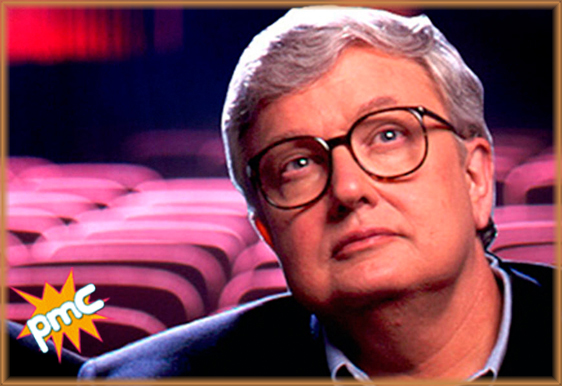Life Itself
2014, 115 mins
Rated R
A
by Cole Stratton (@colestratton)
“I had a colonoscopy once, and they let me watch it on TV. It was more entertaining than The Brown Bunny.” — Roger Ebert
As a life-long film lover, Roger Ebert was a major influence on me growing up. His infectious enthusiasm for film inspired me to write and talk about movies from an early age; while my peers had posters of Ken Griffey Jr. and Ricky Henderson gracing their walls, I papered mine with hand-me-downs from a nearby video store — I was probably the only ten year old with one-sheets from films like Get Shorty, Nadine, A Fish Called Wanda and Lost in America and giant cardboard standees for Broadcast News, Willow and Dirty Dancing. I wrote a review of The Lost Boys and submitted it to The Werehouse’s in-store video magazine when I was 14; it was published and I received a Pirates of Dark Water kite for my trouble, much to my chagrin (I really wanted an MGM sweatshirt and mug, which was an example prize). During high school, I interned at my town’s primary paper The Davis Enterprise, eventually coordinating a bi-weekly page called Youth Beat in which I chronicled exceptional local teens and reviewed films. I came at my subject matter the same way I imagined Ebert did; from a place of pure affection and joy for the medium that had filled countless hours of my formative years. Since then, I’ve often fallen down the rabbit hole of reading his reviews on rogerebert.com, or plowing through online vids of episodes of Siskel & Ebert for hours on end.
Film criticism, and criticism in general, is a tough road to travel — the reviewer is stating an opinion, their opinion, fully aware that many will disagree with them. Roger Ebert approached film criticism with unabashed love and zeal. When a movie was bad, especially when produced by top-shelf filmmakers and actors, Ebert was justly disappointed, like a parent whose children had just acted out in a way that felt like a betrayal. When it was great, he used his massive pull as a columnist with the Chicago Sun-Times and his syndicated TV juggernaut with partner Gene Siskel to encourage people to see them. And when it was a small film, he aggressively worked to make sure it found an audience, such as Errol Morris’ great doc Gates of Heaven and Steve James’ Hoop Dreams.
It seems fitting that James should helm the touching and engrossing new documentary based on Ebert’s own memoir Life Itself, chronicling the last act of Ebert’s life as he battled, and eventually lost his life to, jaw cancer. With his wife Chaz by his side, Ebert allowed James access to capture his days in the hospital (including some icky scenes involving some suction, which Ebert, ever the optimist, tries to make less painful with some Steely Dan). There’s some touching scenes with Ebert’s grandkids, and lots of amazing documentation on his romance with Chaz, whom he met in AA. There’s footage of Ebert and Siskel — who had a very competitive and often antagonistic relationship — feuding and chiding each other as they try to knock out some intros to their show, which felt a lot like walking in on our your parents fighting. But their competitiveness created some truly memorable conversations and discourse about film — each thought they were right in their assessment and tried super hard to change the other’s mind. The film chronicles his rise from college newspaper columnist to one of the most powerful and influential critics in the world, but more importantly, his transition to beloved family man.
The film is littered with examples of aspiring filmmakers that Ebert went to bat for and inspired — one young woman met Ebert as an eight-year-old on the red carpet at the Oscars; many years later, she made a film that Ebert championed. Producer Martin Scorsese also attributes Ebert to molding and influencing him as well; in one particularly amusing sequence, Ebert trashes The Color of Money, which Scorsese admits to being devastated by. Agree or disagree with him, you could always respect him. Life Itself is a compelling and touching tribute to a brilliant and complicated man. Be forewarned: it may make you as weepy as the the last reel of Cinema Paradiso (and if you immediately know what I mean by that reference, then I guarantee that it will). Thumbs up on a life well lived, Roger, and a big thank you from the bottom of my heart.




